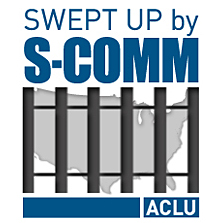
Editor’s Note: This is the last of five blogs in a series focusing on firsthand experiences with Secure Communities from across the country.
In June 2011, New York’s governor Andrew Cuomo suspended our state’s involvement in the Obama administration’s Secure Communities (S-Comm) program, which targets immigrants for deportation, incentivizes racial profiling and sows mistrust between law enforcement and the communities they serve.
Governor Cuomo’s decision overturned an earlier one made by Governor David Paterson, who had quietly entered into an agreement with the federal government to authorize S-Comm. Paterson, like other governors across the nation, had been duped by the federal government and told that local jurisdictions would be able to opt in — or out — of the program.
Unfortunately, after New York and two other states announced their opposition to the program, the Obama administration ignored their concerns, and declared that S-Comm will be mandatory in all states by 2013.
New York should not be forced to participate in S-Comm’s misguided actions simply because the federal government refuses to recognize the program’s myriad harms. Even recent cosmetic changes to the deeply flawed program — the Obama administration’s nod to the concerns of advocates, elected officials and national law enforcement — do little to amend the wrongs S-Comm embodies.
As the Cuomo administration stated in its letter to the Department of Homeland Security in June announcing the suspension of the program, “the heart of [our] concern is that the program, conceived of as a method of targeting those who pose the greatest threat to our communities, is in fact having the opposite effect and compromising public safety by deterring witnesses to crime and others from working with law enforcement.” NYPD Commissioner Ray Kelly called S-Comm “problematic,” citing the erosion of hard-won trust between communities and police.
S-Comm has become a shortcut to deportation — for tens of thousands of people who have committed no crimes. The administration says it supports providing a path to citizenship for millions of undocumented immigrants; it makes no sense to subject many of the same individuals to deportation.
Secure Communities, initially sold as a national-security measure, has yielded the opposite: Communities where people fear calling the police for help or to report a crime are less safe. And the program invites rampant racial profiling by encouraging the police to make pre-textual arrests in order to run checks on immigration status.
The federal government misled New Yorkers about S-Comm. It should not continue to delude Americans into thinking that S-Comm is good for the nation. Our country’s ongoing participation in this misguided anti-immigrant dragnet threatens civil rights, wreaks havoc on fragile family structures, and weakens public safety instead of bolstering it.
Learn more about Secure Communities: Sign up for breaking news alerts, follow us on Twitter, and like us on Facebook.


